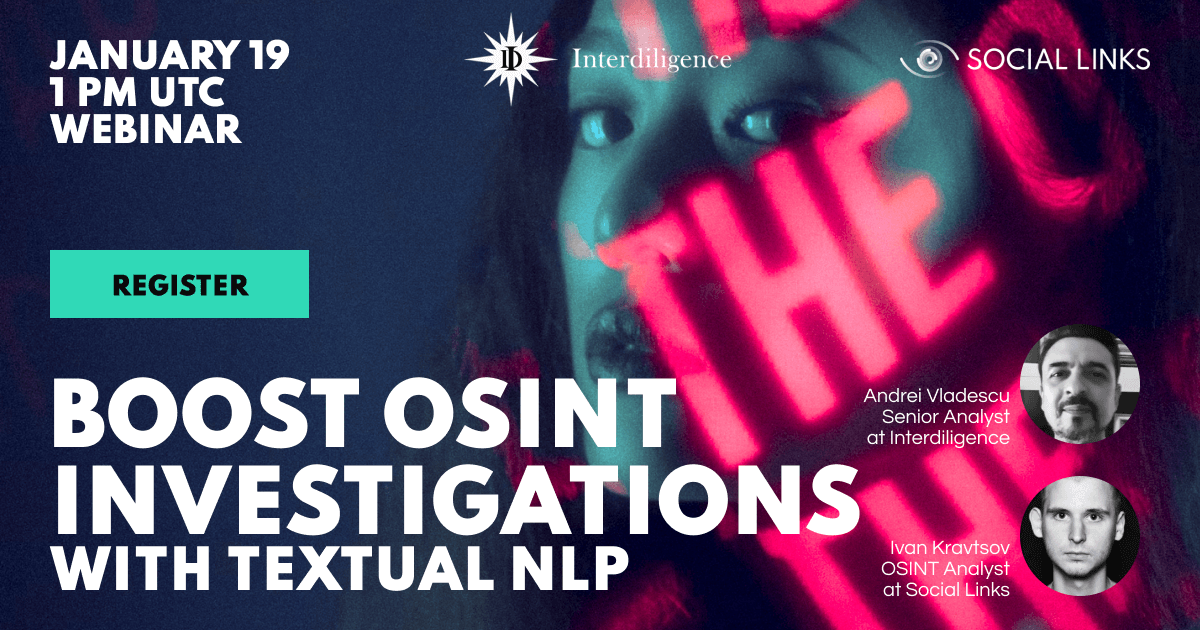Boost OSINT Investigations With Textual NLP


In an era of neural networks and big data, natural language processing is becoming ever more important across various sectors. In particular, the process of analyzing textual data in the public online space is proving vital in the competitive corporate sphere. NLP can help a business socially position itself, protect a brand reputation, and conduct reliable due diligence.
Join us on Thursday, January 19, at 1pm UTC for the webinar Boost OSINT Investigations With Textual NLP. This event will cover both the theoretical and practical sides of how NLP can transform OSINT processes to deliver essential results across a range of cases. While we will be mainly focusing on the corporate sphere, this subject will also be relevant for law enforcement specialists.
We’re excited to be co-hosting this webinar with Andrei Vladescu, Senior Analyst from the consulting and due diligence company Interdiligence. Andrei will join Social Links OSINT Specialist, Ivan Kravstov to discuss the vast utility of NLP in working with open data, followed by a first-hand demonstration of this technology in action.
This section will focus on textual NLP as a key technology in the corporate sector. Drawing from years of experience in this area, Andrey will share his insightful rationale behind how and why NLP technology is effective in understanding a business’ positioning within a community, protecting a corporate reputation, and conducting background investigations. In these contexts, he will discuss relevant NLP techniques including:
In this section, Ivan Kravstov will use built-in, automated features within SL Professional to provide practical demonstrations of the various techniques outlined by Andrei. This practical session will cover how to: